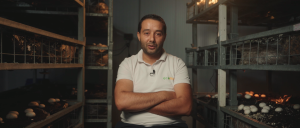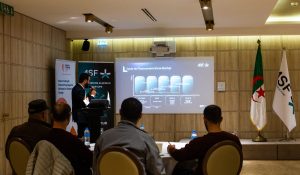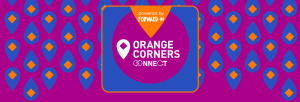In a country where more than 90% of children aged 3 to 5 are out of school, and where access to learning materials is limited, early childhood education can make all the difference. That’s where South Sudanese entrepreneur Duom Peter comes in. Through his company Junub Kids, he develops engaging children’s books designed for the country’s youngest learners. Reviewed and approved by South Sudan’s Ministry of General Education and Instruction , these books are now in use at over 200 preschools in South Sudan, giving tens of thousands of children the chance to start school with a stronger foundation.
Behind Junub Kids lies not only an entrepreneurial vision, but also a deeply personal story of resilience and hope. As an Orange Corners South Sudan alumni, Orange Corners Innovation Fund winner and Alumni Accelerator participant, Duom is proving how entrepreneurship can spark systemic change, one book, one classroom, one child at a time. We sat down with Duom to hear more about his journey, the challenges of building a business in South Sudan, and his dreams for the next generation.
Nice to meet you Duom! Could you introduce yourself and Junub Kids?
My name is Duom Peter, I’m the founder and managing director of Junub Kids Ltd. We’re a South Sudanese company that develops children’s books for early childhood education, specifically for children between the ages of 3 and 5. These are the pre-primary years, a stage that’s crucial for building a foundation for future learning, but one that has long been neglected in South Sudan. In South Sudan, the government only develops textbooks for primary and secondary school. That leaves a huge gap at the pre-primary level. Our books fill that gap and are officially reviewed and approved by the Ministry of General Education and Instruction, which gives them credibility and builds trust with schools and parents. For many preschools in Juba, our books are the first learning materials available for children in this age group.
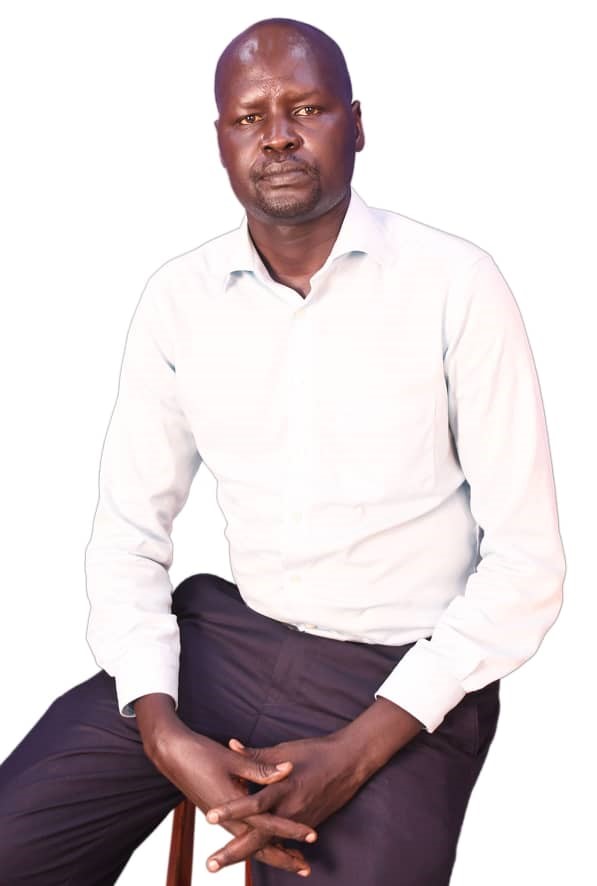
What inspired you to start Junub Kids?
What inspired me to create Junub Kids is actually a very personal and emotional story. In 2020 my wife was diagnosed with kidney failure, and in 2021 we travelled to Egypt for her treatment. While there, we struggled to enrol our 5-year-old daughter in school due to the high costs of my wife’s treatment. That’s why my wife suggested I put my experience as a teacher to use by homeschooling our daughter, and so I did. I started searching for suitable English books, but I discovered that while South Sudan has a curriculum for pre-primary, there were no books developed. So I began writing my own books based on the national curriculum. Over 2.5 years I wrote tirelessly, often working days and nights, and finished 15 books. I then decided to take the book to the Ministry of General Education and Instruction. They formed a committee to review the books and were very happy with my work, so they approved it.
Sadly, shortly after the approval by the ministry, my lovely wife passed away. While mourning over her loss, I decided to officially found Junub Kids to honour her memory and support children like my daughter. Today, over 10,000 copies are in circulation, reaching more than 200 schools and benefitting around 32,000 children. We now provide a wide range of pre-primary books, from English and mathematics to environmental studies, all developed in line with the national curriculum.
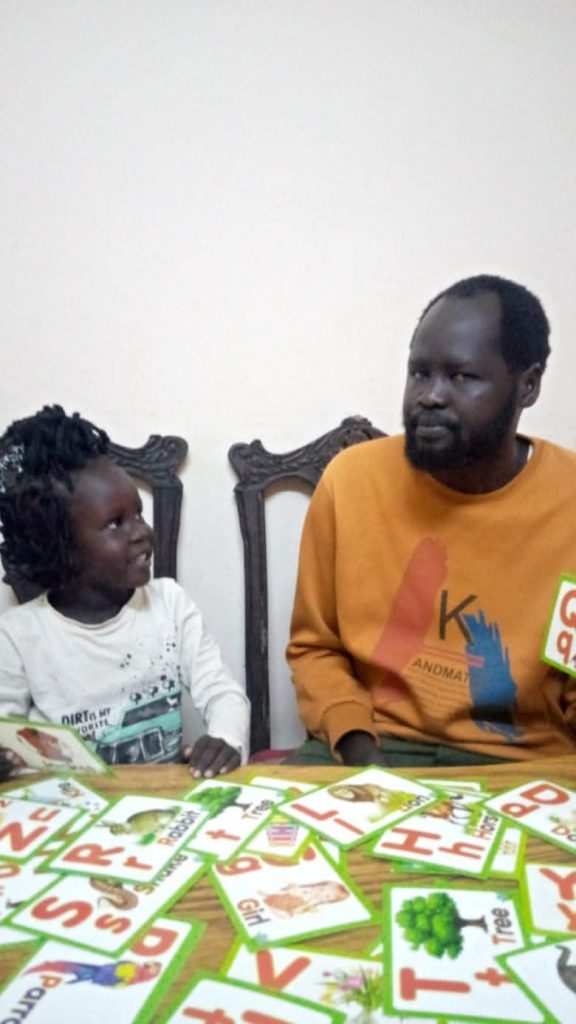
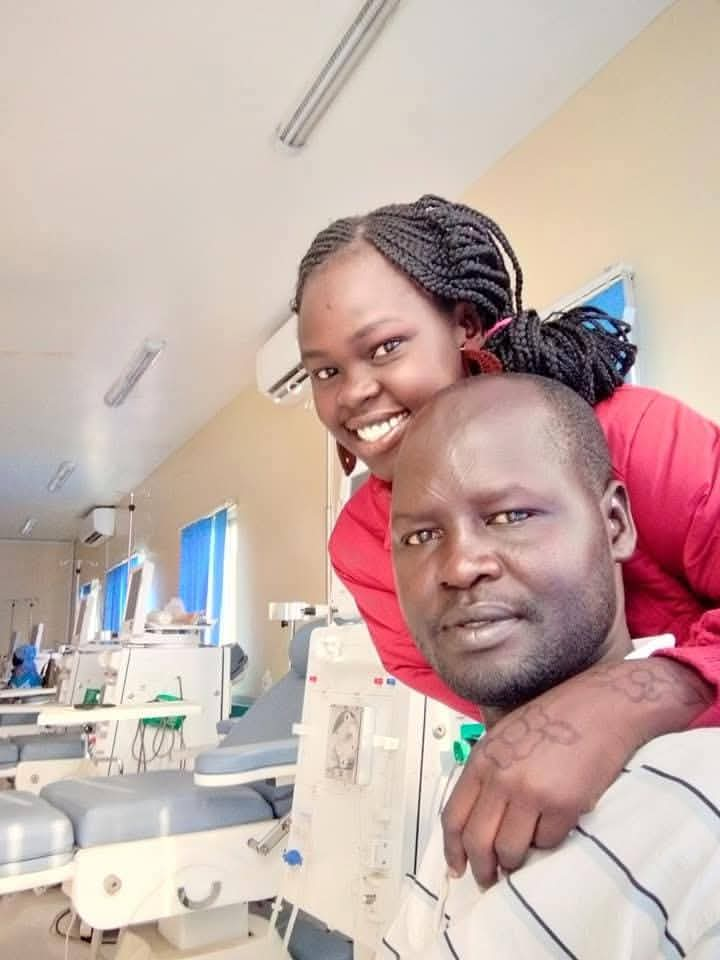
How has your work impacted education in South Sudan so far?
The impact can be seen in several ways. At the classroom level, we’ve given thousands of children access to quality early learning materials for the very first time. This is critical in a country where, according to UNESCO, 94% of children aged 3–5 are out of school, and those who are in school often lack proper materials. Our main customers are preschools and parents, but in rural areas it’s often NGOs and government bodies who step in. Organisations like Lutheran World Federation and Help a Child have purchased our books in bulk and distributed them to schools in hard to reach areas, where parents couldn’t afford buying our books. Without the support from these NGOs, many rural children would remain without access to early learning materials. But now, children in disadvantaged communities also benefit.
Something that really motivates me, is the many heartwarming responses we receive from teachers and parents. One moment I’ll never forget was when I delivered books to a parent. She carefully flipped through each page and asked me where the books had been printed, because she couldn’t believe they were developed and printed here in South Sudan. When I told her I had written them myself, she looked at me and said: “You have really helped the country.” That kind of appreciation is incredibly motivating, and I hear it often from schools that have long been waiting for this kind of materials.
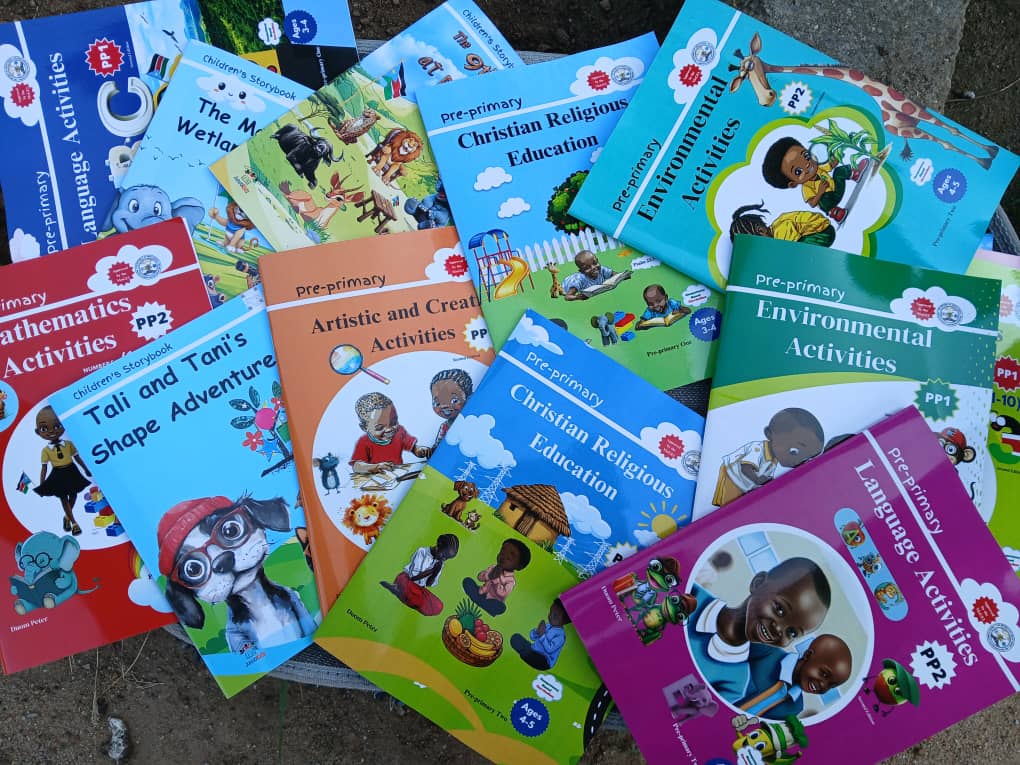
How did Orange Corners support you on your journey?
Winning the Orange Corners Innovation Fund was a turning point for Junub Kids. It gave me not only financial support but also confidence. It gave me the feeling that someone believed in me and my vision, and had stepped to make me realise my full potential. Besides funding, the trainings have been very helpful. I was especially proud of the one-on-one mentorship. Mekupi Kambatuku (Managing Consultant at Simpli Business Advisory) was assigned to me as my mentor, and he really helped me improve my financial management skills. Because of my experience as a teacher, I was strong in content creation but weaker in finance and accounting. Mekupi was able to share with me several tools so that I would be able to track my finances, accountability, activities, and so many other things. Now I have the tools to manage my business more sustainably.
Printing is the biggest challenge for Junub Kids. Until now, we have outsourced printing to local companies, but costs have gone up significantly. To solve this, I tried printing in Uganda, which was cheaper, but it’s not sustainable in the long run. Thankfully, with the Orange Corners Innovation Fund grant, we’re now investing in our own printing unit. This will not only reduce costs but also allow us to print more books and reach more schools.
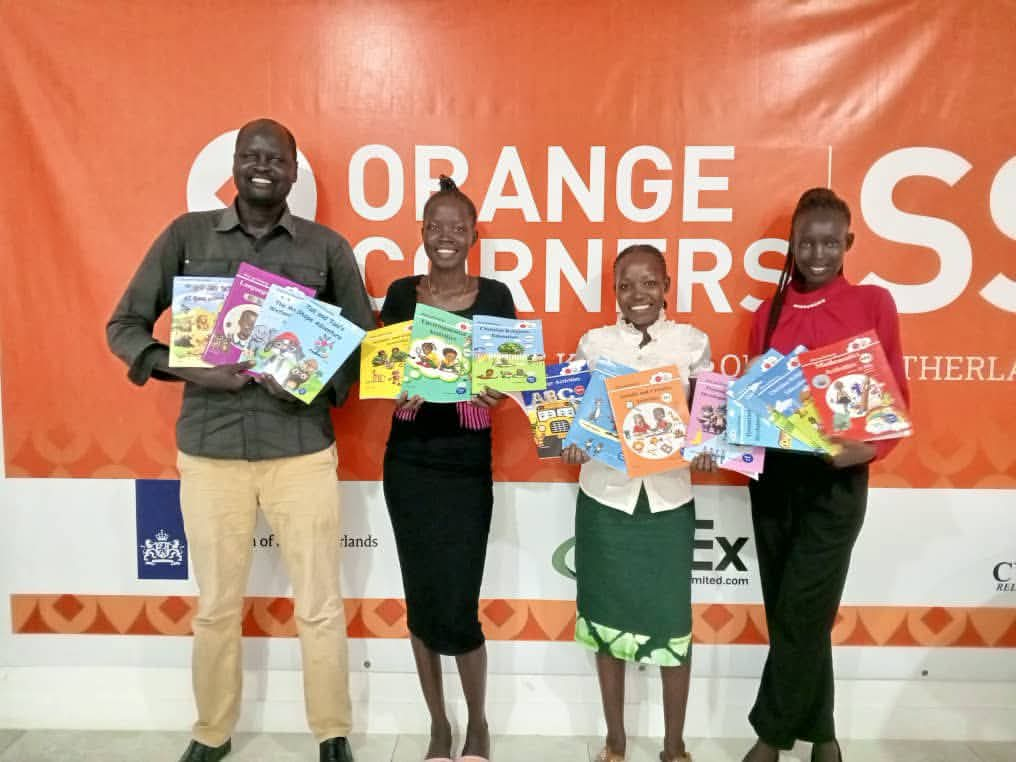
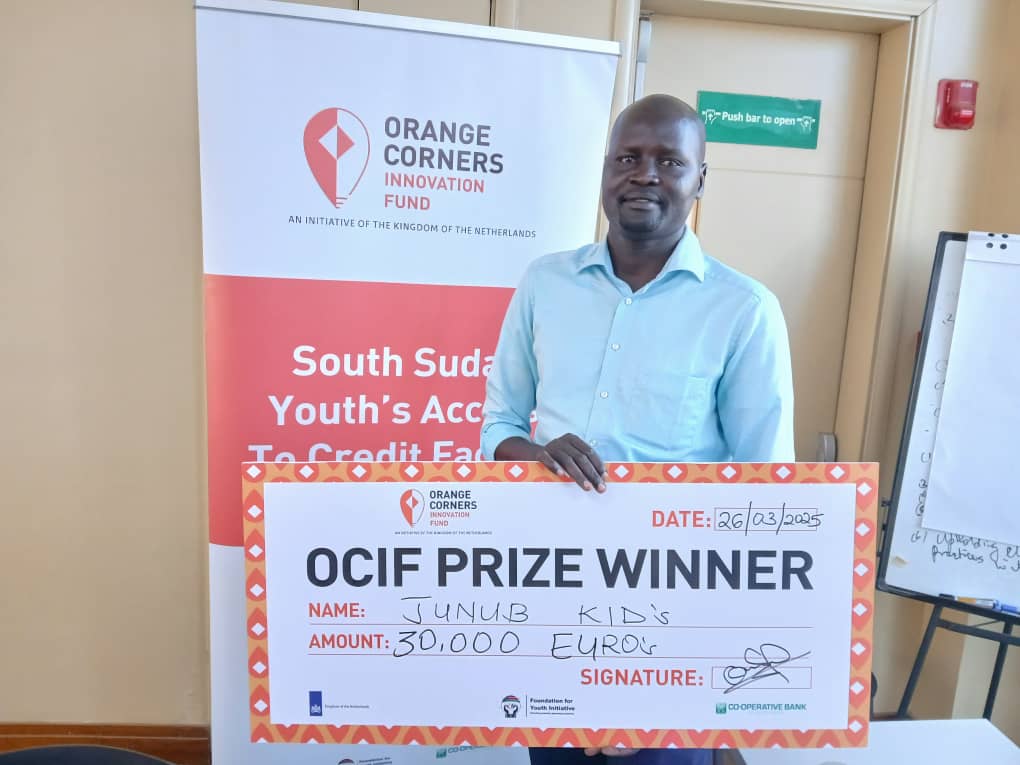
Looking ahead, where do you see Junub Kids in 5 to 10 years?
Right now, we focus on pre-primary books. But in the next 5 years, I see us expanding into primary and secondary school materials as well. I also want to grow our team of 5, recruit more young people, and empower them to write and develop educational resources. Ultimately, my goal is for Junub Kids to play a central role in raising literacy levels and preparing the next generation of South Sudanese children for a brighter future.
In that way, I see education as a driver for South Sudan’s development. South Sudan faces enormous challenges: insecurity, poverty, a very high illiteracy rate and many other challenges. But I believe education is the foundation for stability and progress. If we invest in children today, then in 10–15 years’ time, they’ll contribute to building a safer, more prosperous South Sudan. That’s the vision behind Junub Kids.
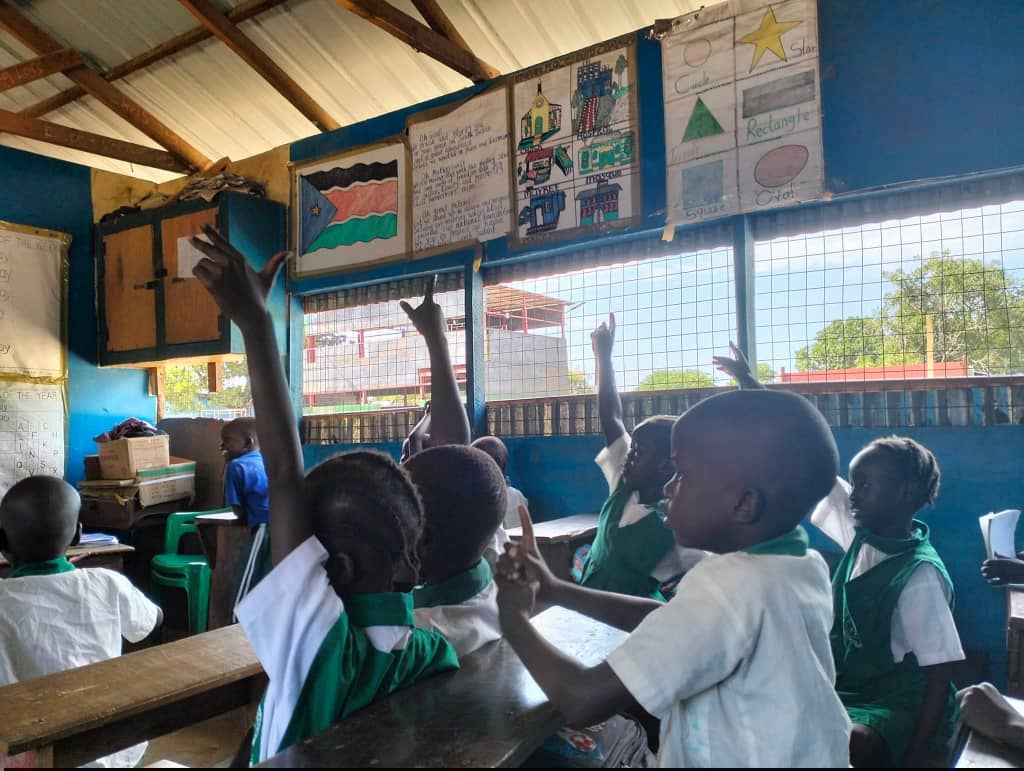
Finally, what advice do you have for other entrepreneurs in South Sudan?
Entrepreneurship here is tough. We face so many challenges because of all the insecurity in our country and it’s very hard to help people, especially in certain rural areas. But I’d tell fellow entrepreneurs: where there are challenges, there are opportunities hidden underneath. If you solve one of these problems, you’re already contributing to the country’s development. Don’t run away from the challenges. Keep going.
Support Duom Peter on his mission to educate South Sudan:
Website
Facebook
Interview by Jurren van Melis, programme assistant Orange Corners (2025)


